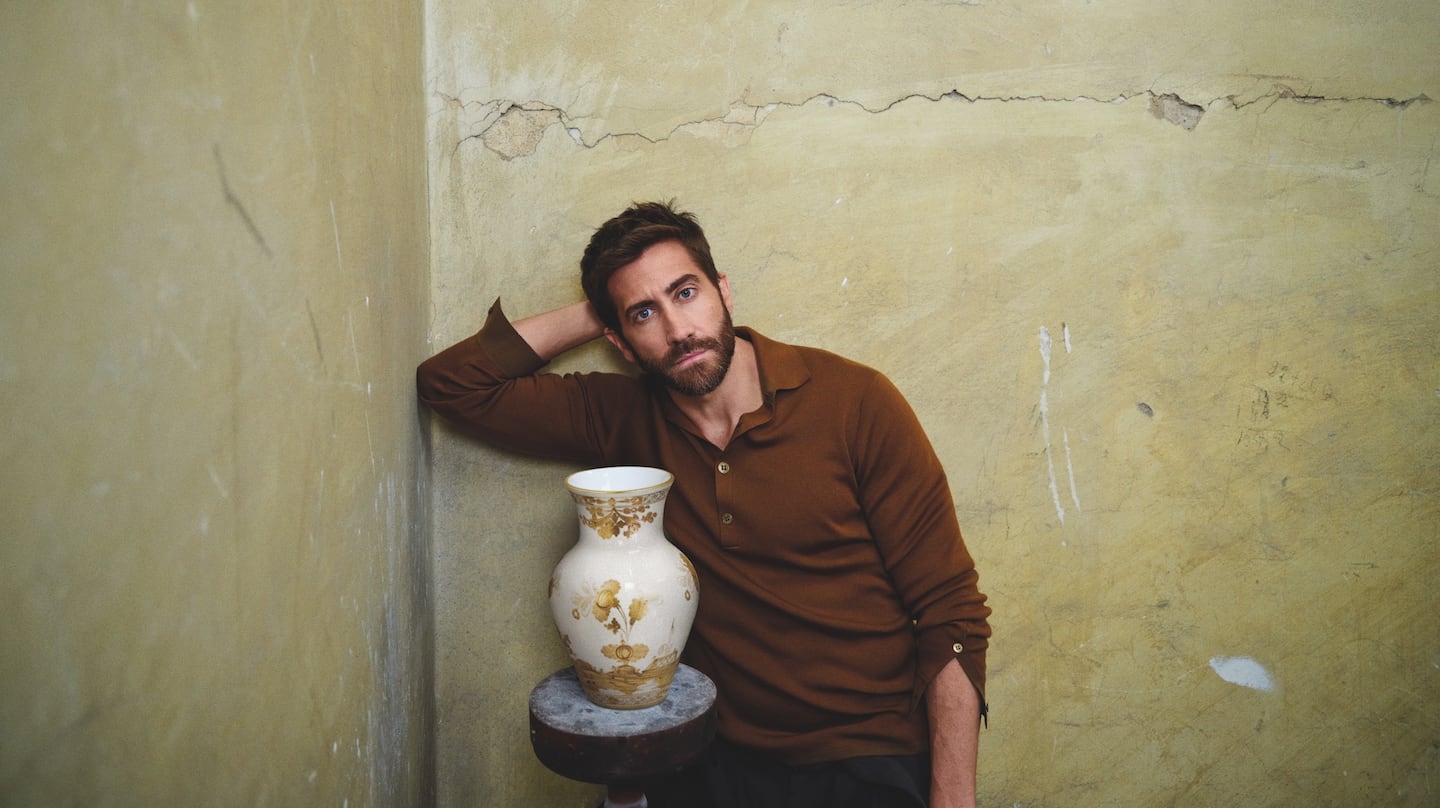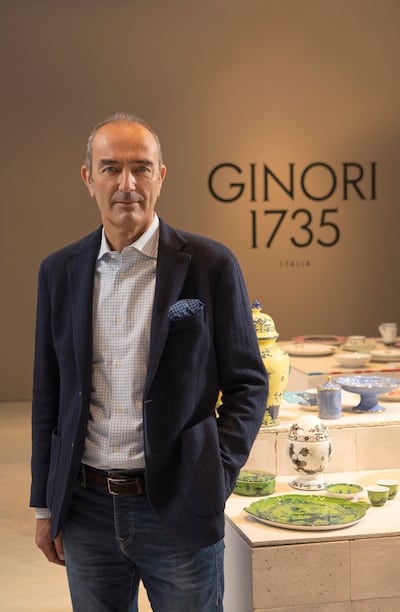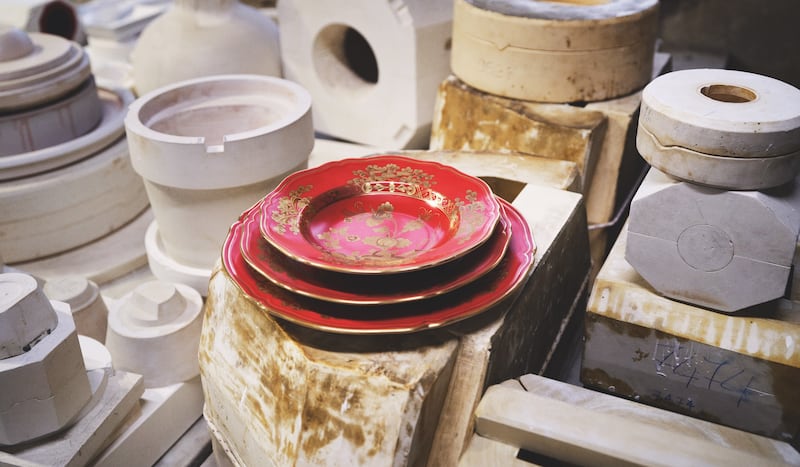
The Business of Fashion
Agenda-setting intelligence, analysis and advice for the global fashion community.

Agenda-setting intelligence, analysis and advice for the global fashion community.

The Kering-owned heritage porcelain brand Ginori 1735 has shifted its activities in the last three years. After rebranding from “Richard Ginori” to “Ginori 1735″ in 2020, the company entered the lifestyle arena and launched “Domus”, its homeware collection featuring lamps, furnishings and fabrics conceived and designed by Luca Nichetto and Nichetto Studio.
The brand has also collaborated with brands and creatives including artist and designer Luke Edward Hall and, most recently, actor Jake Gyllenhaal as the face of its most recent campaigns.
Seeking further opportunities within the $4.3 trillion lifestyle sector, the heritage brand is also eyeing expansion into the growing hospitality sector, to further build upon its brand identity and presence in the sector.
Such moves are now key opportunities for growth for global lifestyle brands. The BoF Insights report, “The Lifestyle Era: Luxury’s Opportunity in Home and Hospitality” found that over 30 percent of surveyed high-net-worth individuals (HNWIs) see branded hospitality experiences as a driver for purchasing the brand’s home goods.
Now, BoF sits down with Ginori 1735′s CEO and chairman Alain Prost to learn more about how the brand is expanding into new regions while retaining its core identity and focus.

I began work at Ginori 1735 four years ago, just months before the height of the Covid-19 pandemic. It was a period of particular uncertainty, but it also provided us with the opportunity to take stock, innovate across our value chain and build on the brand’s DNA.
That thinking continues to be the driving factor for all our recent projects, activations and our communication efforts, with the most concrete change for the end consumer being our name — rebranding from “Richard Ginori” to “Ginori 1735″ in 2020.
During this period, we launched many projects. Modernising our Manifattura was a significant investment — a key pillar of the rebrand, which has been deeply focused on sustainability. Today, we have eco-sustainable static porcelain furnaces for firing and production, replacing outdated and inefficient kilns. The new kilns achieve a 62 percent reduction in energy consumption and 57 percent reduction in CO2 emissions. It has allowed for a renovation of Manifattura’s production layout, optimising product and information flows, and achieving important improvements in the way people work. We have also recruited lots of young talent to help us innovate in this space.
Art has also become an increasingly important focus. The Ginori Art Collection Reborn Project, promoted by Ginori 1735 and conceived and curated by Frédéric Chambre, brought together 19 international artists and designers. Exhibited in Paris, Milan and London the creative project saw them breathe new life into Ginori 1735 pieces. This year, we will have a presence at Miami Design Week, collaborating with other artists.
We have also started to communicate and collaborate with key influencers and opinion leaders, like Jake Gyllenhaal. Short-form video content — creating things that are authentic and impactful — has been key and has brought high brand engagement.
At Ginori 1735, we understand that storytelling is powerful, but it is not enough. We need new technology and innovation to power the brand into the future. It is this unique combination — balancing the legacy of the brand combined with innovation — that allows us to move into new spaces. Technology supports the tradition and the absolute artistic beauty of our Manifattura.
At Ginori 1735, we understand that storytelling is powerful, but it is not enough. We need new technology and innovation to power the brand into the future.
The manufacturing is the source of everything — the communication and brand storytelling stems from that. So, in innovating this process, it keeps our brand modern and strong. We have also focused on recruiting bright young talent globally, to bring an international perspective to our business.
Art is in our brand DNA and it is something that is always evolving. It’s why we have collaborated with more than 30 artists globally in just two years. We are asking things such as, “can you reinvent the use of porcelain? We want to do it with you.” Collaboration and innovation are how the brand will keep its savoir faire and remain relevant and competitive.
Debuted at Milan Design Week 2023, Domus is, for us, a strategic play into the lifestyle space. We didn’t want to simply launch another collection, but rather roll out new products and engage new verticals that express the very concept of the Ginori 1735 brand.
Domus acts as our new interior design branch — a natural extension of our brand story and expertise. Designed by Italian designer Luca Nichetto and Nichetto Studio, and inspired by the company’s own style and heritage, it pieces together porcelain with venetian crystal and high-quality textiles to create lamps, furniture and fabrics. In collaborating on Domus with two renowned Italian brands, Barovier&Toso and Rubelli, we have built on our collective heritage of craftsmanship, channelling that experience into new product.
We consider the stores to be a particularly precious element of our brand. Not everybody can come to see the manufacturing process, so we consider our stores to be an important touchpoint.
We now have a presence in Paris, Milan and London, as the major fashion hubs. The two stores in Italy, for instance, have a very specific role, acting almost as global ambassadors. For instance, our store in Florence provides us with a powerful connection to US consumers who are visiting Tuscany. Our Milan store attracts a more European audience but is still very international in its reach.

It’s why we have been refurbishing our stores to reflect our renewed brand focus on lifestyle. Our Milan flagship was renovated in time for this year’s Salone del Mobile Milano, ready to host the Domus collection. We have recently worked on a similar refurbishment for our Paris boutique — reimagining the space to become more lifestyle-oriented.
We consider stores to be critical to global expansion and continue to build our presence. We are in Harrods in London, we are refurbishing our outpost in Tokyo and we have a store in Seoul. With this step, we are ensuring that Ginori 1735′s international outlook and stance feels increasingly concrete.
We know there is significant customer overlap between the hospitality and lifestyle sectors — the customers of luxury hotels are also Ginori 1735 customers. It gives some legitimacy to our exploration of bespoke solutions for hospitality. It means that, when a partner asks us to develop a bespoke collection for their restaurant, garden terrace or bar, we have a strong grasp on what will be most impactful. We collaborate closely with our current partners, such as the Bulgari hotels in Rome, Paris and Tokyo. Our focus now is to develop more partnerships globally.
Our roots as a business are deeply Tuscan, but to have a place in the tomorrow, we must be internationally minded.
Prior to Covid-19, we had a very typical hospitality business, with traditional relationships. At the height of the pandemic, more than half of the hospitality accounts we held disappeared, for a multitude of reasons. But, as with many other brands and businesses, this moment proved to be an opportunity for luxury players within the hospitality sector to adopt a new strategy. They came to us wanting something more personal, creative and bespoke, and that is what we have created.
What excites me is the challenge of modernising the company culture. Our roots as a business are deeply Tuscan, but to have a place in the tomorrow, we must be internationally minded. We are working to encourage the inclusion of a new global lens and attitude, while building on our legacy of Italian craftsmanship.
We are looking to build new teams, but always focusing on Ginori 1735′s story. Our hope is that Florence will become a global meeting point for Ginori 1735 and the unique support of the Kering group plays a key role in this ambition.
From our evolving partnerships with the luxury hospitality sector to developing our physical store strategy, there are many projects that we, as a business, find energising. One area of innovation that we are particularly excited by is the launch of Oriente Italiano Gold — an update to Oriente Italiano — one of Ginori’s 1735′s most iconic collections.
With actor and artist Jake Gyllenhaal as the official face of the campaign, the collection features the exquisite Aurum and Rubrum colours, which join the ten iconic hues of Oriente Italiano. The new patterns, Aurum in white and Rubrum in red, with a pure gold finish, will decorate tableware pieces, home décor items and scented giftware.
This is a sponsored feature paid for by Ginori 1735 as part of a BoF partnership.
Mining company Anglo American is considering offloading its storied diamond unit. It won’t be an easy sell.
The deal is expected to help tip the company into profit for the first time and has got some speculating whether Beckham may one day eclipse her husband in money-making potential.
The designer has always been an arch perfectionist, a quality that has been central to his success but which clashes with the demands on creative directors today, writes Imran Amed.
This week, Prada and Miu Miu reported strong sales as LVMH slowed and Kering retreated sharply. In fashion’s so-called “quiet luxury” moment, consumers may care less about whether products have logos and more about what those logos stand for.